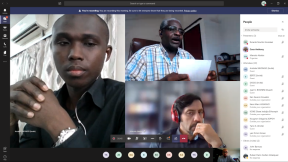Version française Versión española

Although the COVID-19 pandemic has postponed DMFAS training missions in the field, the Programme continues to deliver on its commitments to countries using remote communication technology. The first online technical workshop was recently organized with Côte d'Ivoire.
A workshop related to the local IFMIS (Integrated Financial Management and Information System) that includes the Budget and the Public Treasury, originally scheduled for last April, was successfully delivered online for the staff from the Ministry of Economy and Finance (MEF) from 8 to 19 June.
The objective of the workshop was specifically to prepare for the development of the software link between DMFAS, the Budget Information System (with French acronym SIB) and the Public Enterprise Information and Management System (with French acronym SIGEP).
The Ivorian authorities and the DMFAS Programme examined the options for resuming project activities and achieving th e mentioned workshop, despite the pandemic, to pursue the MEF's commitment to interfacing the Budget and Treasury information systems in 2020. As a result, the DMFAS Programme and the Directorate of Public Debt and Grants (in French Direction de la Dette Publique et Dons - DDPD) organized an online workshop for 8 to 14 key participants at a time, depending on the topic addressed (debt experts and information systems specialists from the MEF and the DMFAS Programme, including developers and SIB, SIGEP and DMFAS database administrators).
e mentioned workshop, despite the pandemic, to pursue the MEF's commitment to interfacing the Budget and Treasury information systems in 2020. As a result, the DMFAS Programme and the Directorate of Public Debt and Grants (in French Direction de la Dette Publique et Dons - DDPD) organized an online workshop for 8 to 14 key participants at a time, depending on the topic addressed (debt experts and information systems specialists from the MEF and the DMFAS Programme, including developers and SIB, SIGEP and DMFAS database administrators).
-
There was more apprehension than necessary at the beginning about the possibility of carrying out this activity online given the technical and logistical challenges. The commitment of the authorities, especially the Director of the DDPD, Mr. Jules Coulibaly, and the Head of the DMFAS Programme, Mr. Gerry Teeling, as well as of the coordinators who organized the workshop (Marc Assanvo of the DDPD in Abidjan, and Ricardo Murillo in Geneva) were essential for the successful organization, follow-up and closure of the activity.
-
Importance of pre-workshop preparation. It is important to share all necessary documents with participants before the workshop to give them enough time to prepare for the online event and optimize time
-
Intervention of more DMFAS experts than in a traditional workshop.Traditionally, one expert travels to the country to facilitate a workshop. With the online delivery of the activity, several DMFAS experts with different skills were able to contribute from home and enr ich the working sessions. Three IT experts from the DMFAS Programme participated in this workshop with Côte d'Ivoire, namely, Mr. Marcelo Abalos and Mr. John Barrozo (based in Geneva) as well as Mr. Coco Anthony (based in Togo).

- Greater flexibility for participants. Online activities can be more easily organized to allow participants to block defined slots to devote to the activity, without having to sacrifice the whole working day as is the case in a traditional face-to-face workshop on site, leaving time for participants to carry out their daily tasks after or before the DMFAS session.
- Document sharing is more efficient through videoconferencing. Participants can easily be given control of the system to present an unlimited number of documents in a few clicks.

- Addressing logistical challenges. The availability of adequate equipment (computers, software, electricity, good quality internet connection) is important for the fluidity of the work and the motivation of the participants. In addition, videoconferencing tools (MS Teams, Webex) have advantages and disadvantages that need to be known, managed and adapted to the needs of the workshop.